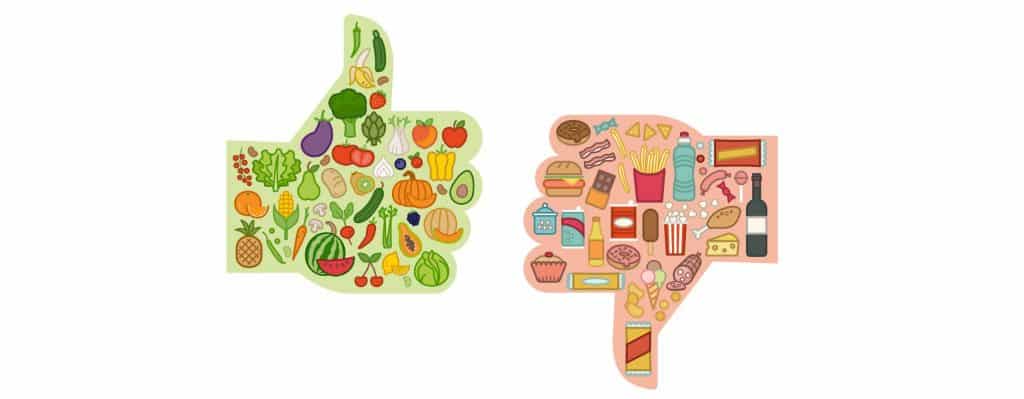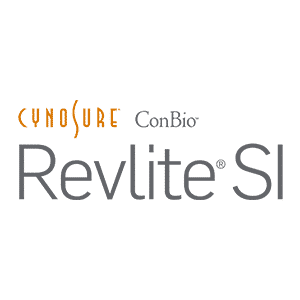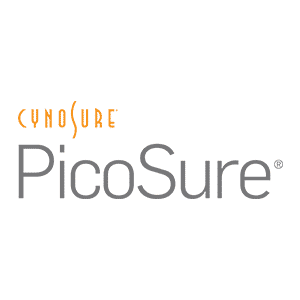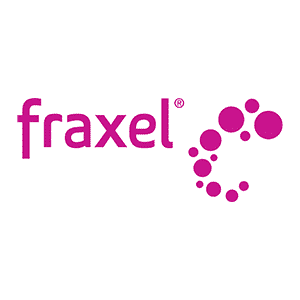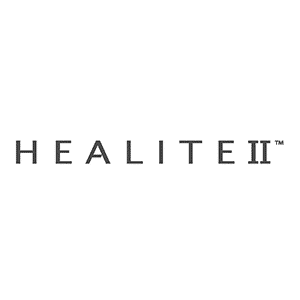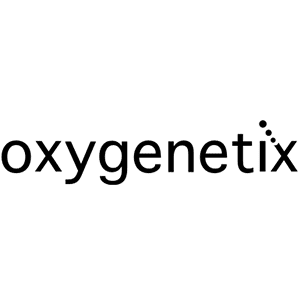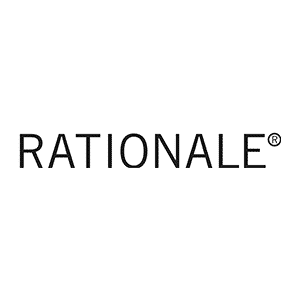As we try and adapt to a COVID-19 world it has never been more important to make sure your immune system is working as well as possible. We know that people who have a compromised immune system are at a much greater risk of severe COVID-19 infection. It is also thought that the better your immune system the less chance of catching COVID-19 infection in the first instance and then if you do become infected the less likely you are to have a severe infection.
It has never been more important than now to have an optimal immune system and here are 6 key things to do to make sure your immune system is working as well as possible.
- Good Nutrition.
Good nutrition is essential to a strong immune system and the key to good nutrition is eating quality food and less of it. Quality means more fresh fruit and vegetables and less packaged and processed foods. Less of it means think of portion size, as in the Western diet we typically overeat and consume more calories than we need.
Excessive sugar consumption is a major issue and amongst other adverse effects high sugar intakes can significantly reduce the effectiveness of white blood cells in fighting infection and negatively impact Vitamin C levels in the body. The damage from sugar seems dose dependent which means the more sugar in your diet the greater the negative impact on your immunity. It has become clear that the intake of saturated fats including meat, eggs and dairy are not as big a health concern as excess sugar. If using foods labelled as low or no fat always remember that does not equal healthy and they are often loaded with sugar to improve their taste.
A good summary of healthy foods that can help your immune system has been put together by Professor Avni Sali from the National Institute of Integrative Medicine in Hawthorn (https://dispensary.niim.com.au/blogs/news/immune-boosting-foods). It is recommended that adults have 2-3 pieces of fruit and 3-5 portions of vegetables a day but unfortunately, studies show only about 10% of people regularly meet this ideal diet. Because of this it is worth considering taking a daily Multivitamin supplement. Studies from Harvard University have demonstrated a daily Multivitamin supplement can have multiple benefits including reducing cancer and heart disease risks. But supplements are not a quick fix but rather a longterm support as the benefits of taking a daily Multivitamin only start to be significant after 10 years, so the sooner you start the better!
Some experts recommend that everyone over the age of 40 should take a daily quality Multivitamin. As a guide to what is a good quality Multivitamin it should have at least 400 mcg of Folic acid. (eg.Swisse Multivitamin).
Good nutrition also means having a healthy gut as the gut contains 70% of our immune system. There is increasing research on the importance of the gut ‘microbiome’ and to help maintain a healthy gut a good diet is important including enough fibre as well as fermented foods such as yoghurt which are rich in beneficial bacteria. If you don’t regularly take yoghurt take a daily probiotic supplement each night. For gut health the Lactobacillus and Bifidiobacteria strains are important (eg. Blackmores Probiotics +) and for best absorption take your probiotic last thing at night when there is less acid in the stomach.
- Good Quality Sleep.
Proper sleep is important for good health and numerous studies have linked insufficient sleep with significant health problems. There is a strong association of poor sleep with an increased risk of early death. This risk is seen worldwide for all genders and races if adults sleep less than 4 hours or more than 10 hours. Good sleep is important for immunity for example one study of 164 healthy adults found that those who slept fewer than 6 hours were more likely to catch a cold than those who slept more than 6 hours.
As well as length of sleep it is important to have quality sleep. Sleep has various stages and it seems REM (Rapid Eye Movement) sleep is the most important. REM is when dreams typically happen and is when body repair is thought to occur. Conditions such as obstructive sleep apnoea can reduce REM sleep so if you have difficulty sleeping, loud snoring or waking up very tired, you should discuss it with your family doctor, and it may require further investigation.
The recommendation for adults is 7-8 hours of quality sleep each night.

3. Regular Exercise.
Regular physical exercise has many health benefits including reducing stress, controlling weight and improving immune function. Exercise can increase hormones that make you feel happy and help you sleep better which also helps immunity. Most of the health benefits of exercise occur with at least 150 minutes per week of moderate intensity aerobic exercise. This time can be accumulated over the week and can be split into periods of at least 10 minutes. Health authorities also recommend some vigorous intensity aerobic exercise and resistance training for muscle strengthening at least 2 days a week as well.
Intensity of physical activity depends on your level of fitness. Moderate intensity is defined as 50-70% of maximal heart rate but in practice is a level that noticeably increases your heart rate and breathing rate. You may sweat during moderate exercise but should not be huffing and puffing and you should still be able to have a conversation. Brisk walking is a good option but gardening and even housework count.
Three to five hours per week of moderate exercise is to be strongly recommended but bottom line is some activity is better than none and consider as a minimum a 30 minutes brisk walk on most days.
4. No Toxins
Smoking, illegal drugs and excess alcohol are all toxins that can adversely affect your health including immunity. An Australian National University study in May 2020 found 20% of Australian adults have reported drinking more frequently during COVID-19 than before. The main reason given was simply because of spending more time at home with the second biggest driver in women being increased stress and in men it was boredom. The increase in frequency of alcohol consumption was greatest among those who drank more often prior to COVID-19.
During COVID-19, be mindful of excess alcohol and drinking more often, which can increase your susceptibility to infection by impairing white cell function.
- Stay Happy
Reducing stress and being Happy seem to be closely aligned to good health. A Harvard University study concluded the major key to Health and Happiness is having another person in your life you care for and who cares for you. Renowned health expert Dr Ross Walker feels there are 5 major keys to having a happy and contented life and if you are interested to find out more go to his videoclip https://vimeo.com/43724068. Studies have also shown laughing improves measures of immune function such as blood levels of Immunoglobulin A and Gamma interferon.
Don’t forget to enjoy life, and perhaps instead of watching all the news bulletins about COVID-19 watch a comedy movie or even cartoons!

- Vitamin D
Vitamin D is very important for immunity. A major review published in the British Medical Journal in 2017 of 25 randomised controlled trials of 11,321 people showed Vitamin D supplementation was protective against viral respiratory infections such as colds and influenza. Recent observational studies have found an association between low Vitamin D levels and higher rates of COVID-19 infection and suggestions that if you develop the COVID-19 infection you will recover better if you have normal Vitamin D levels.
To assess Vitamin D a blood test measures 25 hydroxyvitamin D in units called nmol/L. A blood level of Vitamin D <30 is deficient and <50 is low and whilst there is some conjecture about the optimal level our advice is to try and have your Vitamin D blood level above 100 (and if you have immune problems 120 is preferable). The main natural source of Vitamin D is from sunlight. The general recommendation to maintain adequate Vitamin D levels is to directly expose your skin to sunlight for 15-30 minutes per day while taking care to avoid sunburn. It is the Ultraviolet B that stimulates Vitamin D and this does not penetrate through glass so you need to be outside.
In modern society there is a very high incidence of low Vitamin D levels with some estimates that 70% of Australians are Vitamin D deficient! These low Vitamin D levels are largely because of inadequate sun exposure due to our lifestyle with Australians living in cities and working indoors, smog, use of sunscreen and the climate in Melbourne where there is limited sunshine for many months of the year. COVID-19 stay at home orders have meant even less time outdoors for many and less opportunity to obtain your Vitamin D from sunlight.
With so many people being deficient and the high importance of Vitamin D for immunity we would recommend that people living in Melbourne take a Vitamin D supplement each day. At least 1000 IU/day (one capsule) and 2000 IU in winter. If you have a low Vitamin D blood level you may need a higher supplement dose to correct it, so next time you need a blood test also get your Vitamin D level checked. It is the Vitamin D3 form that is used as a supplement. It is a cheap supplement with the brand not that important, so buy whatever is on special.
There are other dietary supplements apart from Vitamin D that can influence immunity and may help both protect against respiratory infections and if you have an infection reduce the duration and severity of the infection. None of these have specifically been studied with respect to COVID-19 but there is good evidence they have antiviral benefits. If you are concerned about your immune status, in addition to Vitamin D, it is also worth considering taking other supplements as well.
- Vitamin C enhances white blood cells, increases interferon levels and improves the resistance of mucous membranes. Take 2g/day.
- Zinc is required for the proper functioning of white blood cells, helps activate immune hormones and promotes destruction of foreign particles. Zinc also enhances the role of Vitamin D and Vitamin C. Take 30 mg/day (avoid higher dose than this as can then interfere with Copper absorption).
- Ginger capsules, Curcumin and Licorice root capsules are known to have anti-viral activity.
- There are a number of herbal immune stimulants such as Olive Leaf extract and Mushroom formula (eg Metagenics Super mushroom mix) that improve immunity and are antagonistic to infections.
In Summary
The best approach in this time of COVID-19 is preventing the spread of the virus. To do that have a mindset every day that you may have COVID-19 and everyone you meet may have COVID-19 and behave accordingly. The 6 main things you can do prevent the spread of COVID-19 are:
- Hand Hygiene (No handshake, Wash frequently)
- Cough Hygiene (Cover up to cough/sneeze)
- Do not touch your Face (Mouth/Nose/Eyes are how the virus enters body)
- Social Distancing (1.5 metres)
- Wear a Mask if you cannot Social distance (eg Public Transport, Shopping, Lifts) or if you are Unwell
- If you are Unwell get Tested and Stay at home
Having a great immune system does not guarantee that you cannot catch COVID-19 or if you have COVID-19 spread it to others. But an optimal immune system will reduce your chance of getting infected and if you catch COVID-19 reduce the chance of it being severe. The 6 main things you can do to optimise your immune system are:
- Healthy diet (Fresh food, Less sugar, Yoghurt/Probiotic and Multi-Vitamin)
- Quality Sleep (7-8 hours/ night)
- Regular Exercise (30 minutes brisk daily walk)
- No Toxins (Avoid excess alcohol)
- Laugh (Comedies vs News)
- Vitamin D (2000 IU/day)
At the Collins Cosmetic Clinic, whilst our main focus is your skin health and treating skin and cosmetic conditions, we are a medical clinic run by doctors and your overall health and wellbeing are also very important to us. We are happy to provide any advice we think can help our patients and the wider community during this challenging time. If you have any questions related to the measures we have suggested to help support your immune system feel free to ring our clinic on 03 96545720 or email us on contact@collinscosmeticclinic.com.au.
